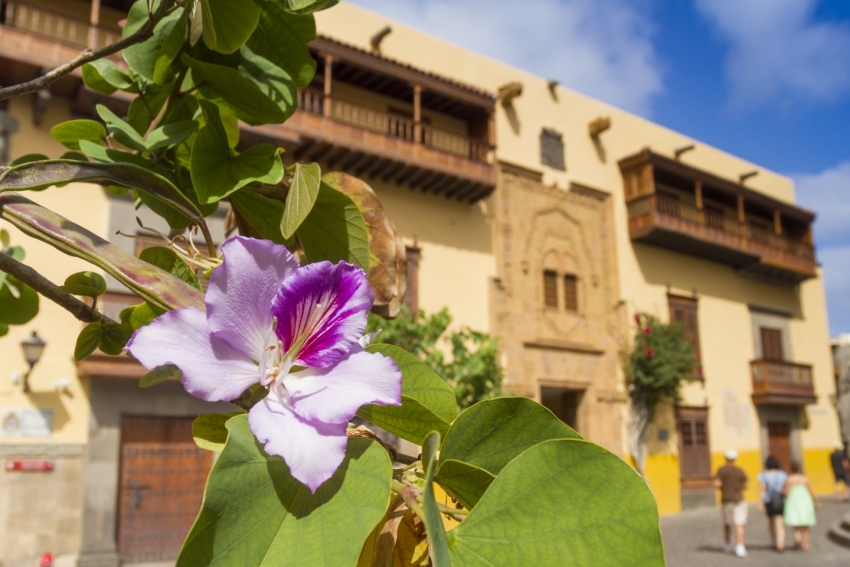The truth is that the story that Columbus stopped in Las Palmas on his way to discovering America, and gave his last sermon in Vegueta, is largely a modern marketing myth.
1492 and all that
There isn't actually much evidence that Columbus even moored his ships at Las Palmas; He may have been based down at Gando Bay on the east coast. However, he would have visited Las Palmas at some point (it was more a garrison than a town at the time) to present his credentials.
The main reason Columbus stopped in Gran Canaria at all is because someone (probably its owner) sabotaged the rudder of La Pinta in the hope of stopping Columbus from sailing it into the unknown.
Lex Says: Everyone knew that the Earth was round in 1492; They also knew that wooden ships would rot long before they reached China. Columbus ignored them and was lucky that America was in the way.
Did Columbus stay at the Casa de Colón in 1492? Not a chance, the building is only about 150 years old and was built as a mansion for the governor. We imagine Columbus spent most of his time on his ships making sure that there were no more mishaps.
History of a house
The Governor's mansion, now known as the Casa de Colón, is thought to be 150 years old but it wasn't until the late 1950s that it became the ornate mansion that you see now.
The refurbishment was by Nestor Alamo, a writer and composer born in Guía, and was done deliberately to create a tourist attraction that connected Vegueta to Columbus.
He added the carvings, designed the green stone doorway and installed the wooden balconies, and created the myth about the house being the place where Columbus stayed.
Links to America
Nowadays even the Casa de Colón museum itself plays down its links to Columbus and focuses on the history of Las Palmas and the links between the Canary Islands and the Americas. The myth lives on, however, in guide books and guided tours.
Columbus reinvented
Columbus wasn't the hero that we remember from school books. He favored slavery and wasn't shy about tricking people and stealing their gold. As an administrator in the Americas, he was hopeless and at one point was shipped back to Spain in chains.
Millions of native Americans blame him for the slavery and disease that ravaged the continent, although the truth is that if Columbus hadn't got lost on his way to China, someone else would have discovered America soon afterwards. Slavery and syphilis were heading Americas way; Columbus just happened to get there first.
Worth a visit?
The Casa de Colón is a beautiful building both inside and out and has plenty of exhibits that make the small entrance fee worthwhile. Along with the Museo Canario and the Silver museum, it's definitely worth a visit even if you have to suspend your disbelief about the links to Columbus.














